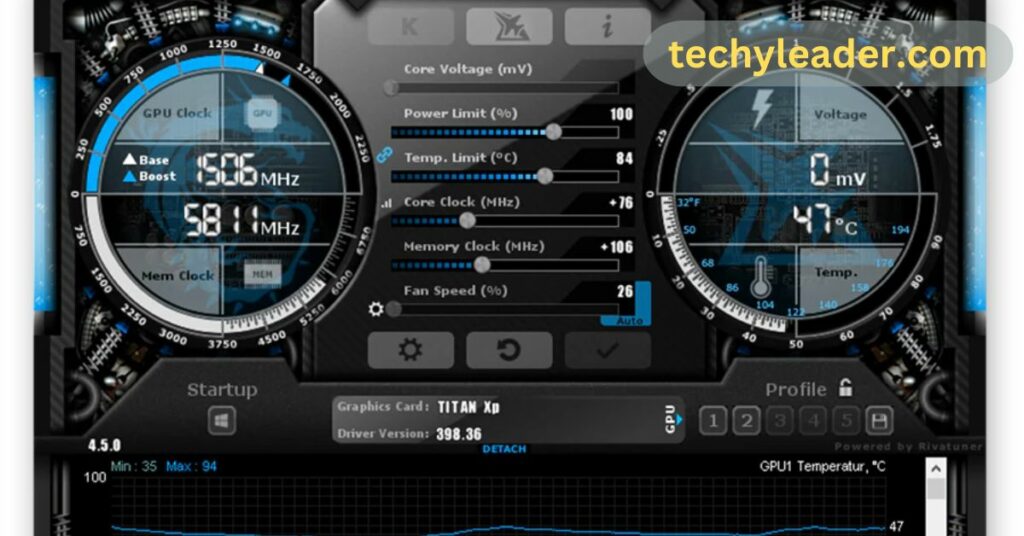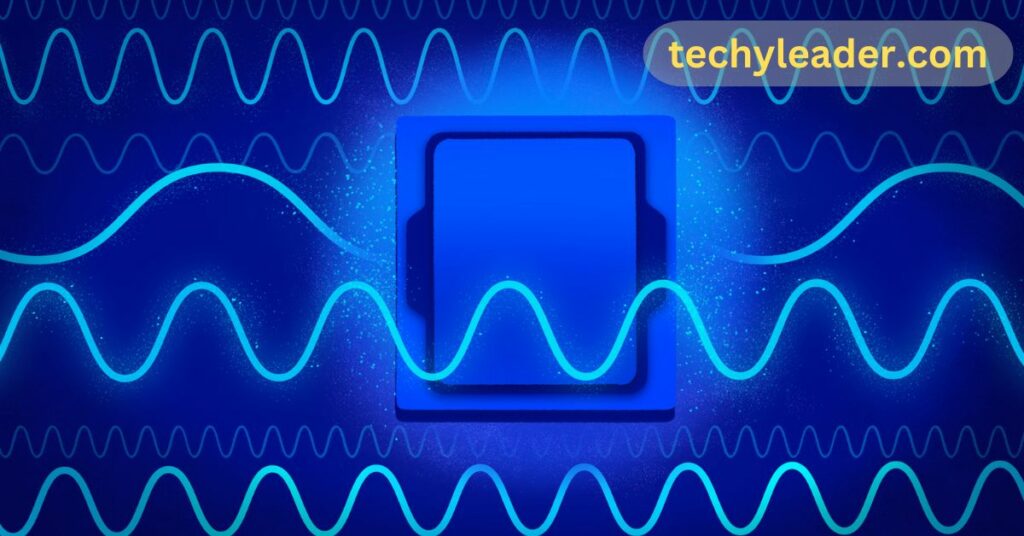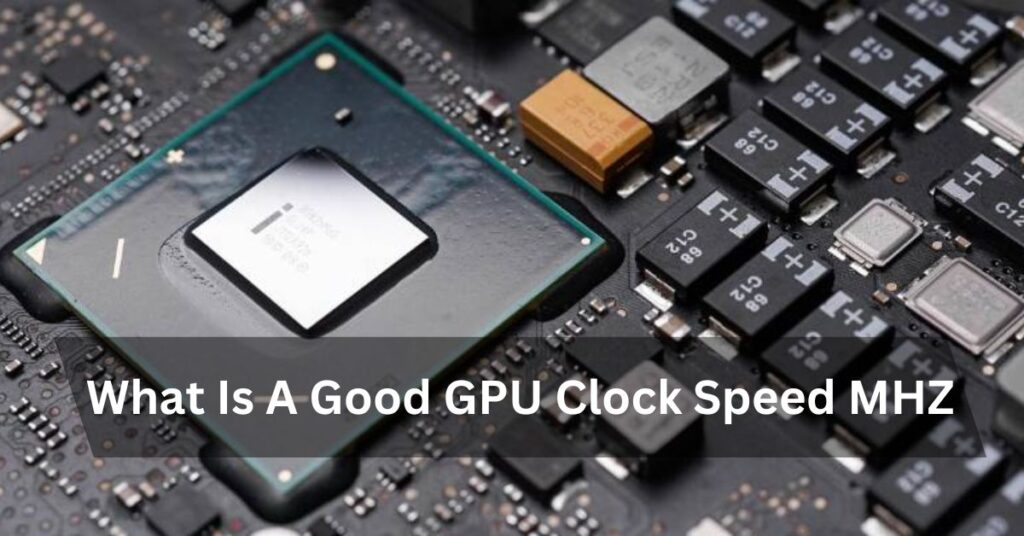Among the numerous specs of a GPU, the clock speed frequently garners huge attention. But what exactly is a high-quality GPU clock tempo in MHz, and how does it affect your computer’s performance?
The “good” GPU clock velocity in MHz depends upon numerous factors, including an appropriate GPU version, the intended use (e.g., gaming, professional paintings, full-size use), and the cooling solution.
In this article, we will explore GPU clock speed, what constitutes an excellent clock tempo in MHz, and how to make the most of it in your dreams.
What is GPU Clock Speed?
1. Definition and Basics:
GPU clock velocity, measured in megahertz (MHz), shows how speedy a GPU’s cores can execute commands and manner facts. In much less complicated phrases, it’s a degree of ways the GPU can work speedily. The clock speed determines the sort of cycles a GPU can perform in keeping with 2nd, with higher speeds commonly translating to better standard performance.
For example, if a GPU has a clock pace of 1,500 MHz, it can complete 1.5 billion cycles consistent with the second. This pace affects how quickly and efficiently a GPU can render photos, perform calculations, and execute obligations.
2. Core Clock vs. Memory Clock:
It’s crucial to differentiate between the center clock speed and the memory clock pace. The middle clock pace refers to the rate of the GPU cores, even as the memory clock pace pertains to the price of the GPU’s VRAM (video memory). Both play vital roles in overall performance, but the middle clock speed is usually the number one concern when discussing GPU speeds.
Also Read: Will My CPU Bottleneck GPU?-A Comprehensive Guide
Factors Influencing Good GPU Clock Speed:

Several elements affect what constitutes a “top” GPU clock speed for a given software program or use case. Here’s a breakdown of those elements:
1. GPU Model and Architecture:
- Design and Specifications: Different GPU’s have particular bases and enhanced clock speeds based on their layout and supposed general performance. Newer architectures typically have higher base clock speeds and progressed overall performance.
- Manufacturer Variations: Various manufacturers offer different clock speeds even for the same GPU model due to custom cooling solutions and factory overclocking.
2. Cooling Solution:
- Compelling Cooling: Better cooling structures (e.g., unrivaled air coolers, fluid cooling) allow the GPU to run at higher clock speeds without overheating.
- Warm Choking: Without satisfactory cooling, the GPU can choke its clock speed to abstain from overheating, affecting execution.
3. Power Supply:
- Power Requirements: Higher clock speeds often require greater power. A sturdy power supply unit (PSU) is essential to handle the demands without stability problems.
- Power Delivery: The quality of energy shipping on the GPU will affect its capacity to maintain better clock speeds.
4. System Stability:
- Overclocking Stability: Balance is vital when manually overclocking. Increased clock speeds can result in tool instability or crashes if not adequately managed.
- Voltage Adjustments: Adjusting voltages can help maintain stability at higher clock speeds. However, this can also boost energy consumption and warmth era.
5. Use Case and Workload:
- Gaming vs. Professional Work: Different applications may benefit from exceptional clock speeds. Gaming GPU’s could improve for higher body prices while are likely tuned to performance over longer intervals.
- Resolution and Settings: Higher resolutions and settings might benefit less from better clock speeds if the tool is bottlenecked somewhere else alongside CPU performance.
6. Temperature Management:
- Ambient Temperature: Higher ambient temperatures can impact cooling performance and affect the GPU’s capability to maintain immoderate clock speeds.
- Case Ventilation: Good case airflow helps preserve the GPU and ensures that ordinary machine temperatures are in check.
7. Driver and Software:
- Driver Updates: Updated drivers can optimize performance and balance, allowing the GPU to run at higher speeds.
- Software Optimization: Some software program applications or video games are probably optimized for better GPU speeds, while others may not see vast benefits.
8. Factory Defaults and Custom Models:
- Factory Settings: Many GPU’s include manufacturing unit overclocked settings, offering better performance out of the box.
- Custom Models: Some aftermarket GPU’s include better cooling solutions and clock speeds than reference fashions.
Also Read: AMD GPU On Intel CPU-Everything You Need to Know
Typical Clock Speeds for Various Applications:

1. Gaming GPU’s:
- Entry-Level Models: Typically perform among a thousand and 1500 MHz.
- Mid-Range Models: Often clocked between 1500 and 1800 MHz.
- High-End Models: Usually attain speeds from 1800 MHz to 2100 MHz or higher.
2. Professional GPU’s (for duties like 3-D rendering, AI, and plenty of others.):
- Entry-Level Professional Models: Usually clocked spherical 1200 to 1500 MHz.
- Mid-Range Professional Models: Generally carried out between 1500 and 1700 MHz.
- High-End Professional Models: You can gain clock speeds from 1700 MHz to 2000 MHz.
3. Overclocking:
- Manual Overclocking: Speeds can exceed 2000 MHz, but balance and cooling concerns are vital.
4. Examples of Specific GPU’s:
- NVIDIA RTX 3060: Boosts up to approximately 1777 MHz.
- NVIDIA RTX 3080: Boosts to around 1710 MHz.
- AMD RX 6800 XT: Can obtain as much as 2250 MHz.
- AMD RX 5700 XT: Boosts to approximately 1905 MHz.
Also Read: What Is GPU Cache?-A Comprehensive Guide
FAQ’s:
1. Is higher MHz higher for GPU?
The quicker the reminiscence clock velocity, the faster the GPU can access this information and the better it will carry out.
2. What is a safe GPU clock pace?
Usually, any overclock between five and fifty Mhz needs to cause no problems, so this is an extra test to see whether the overclock works in any respect.
3. Is 2000 MHz ideal for gaming?
A 2000 MHz Ethernet connection called Gigabit Ethernet is more significant than enough for gaming.
4. Does MHz grow FPS?
On average, across the seven games, it could be visible that the weakest processor benefits the most from higher RAM clock speeds. Just switching from 4800MHz to 6000MHz will increase the FPS by 11 percentage points, which is not unusual.
5. How many MHz do I need to overclock my GPU?
First, attempt overclocking GPU memory through 10% or 50 to 100 MHz.
Conclusion:
In summary, a fantastic GPU clock speed is relative to the type of obligations you plan to perform and the general specifications of your system. Entry-stage GPU’s generally provide clock speeds between 1,200 and 1,500 MHz, mid-range GPU’s vary from 1,500 to 2,000 MHz, and immoderate-cease GPU’s can exceed 2,000 MHz, with enhanced clocks frequently carrying out 2,500 MHz or more.
